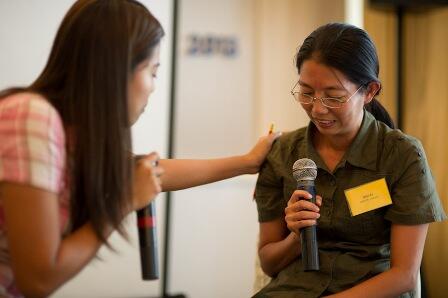A landmark training aimed at providing emergency medical response for individuals who are possibly exposed to the HIV virus, has been undertaken in Yangon, Myanmar. The training involved 30 participants from a wide range of UN organisations within the UN CARES system-wide workplace program on HIV as part of meeting one of the ten minimum standards.
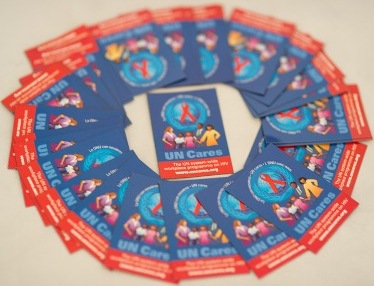
Participants are responsible as custodians of Post-Exposure Prophylaxis (PEP) Starter Kits to potentially exposed personnel. Lazeena Muna-McQuay, UN Cares Regional Coordinator provided training and facilitation during the training, commenting that, “this training helps to increase the capacity of participants and Myanmar country protocol on where the kits are and how they should be administered.”
The PEP starter kit consists of medication, laboratory tests and counseling. PEP must be initiated within hours of possible HIV exposure and must continue for a period of approximately four weeks. PEP kits have gradually been introduced within Myanmar’s UN agencies with initially only 3 PEP kits available, but now there are 110 PEP kits servicing all 7 States and 7 regions throughout the country. During the training participants could gain a valuable understanding of what each of the components and medications in the PEP kit does. Additionally participants learnt how to protect themselves and others from HIV infection, learn the UN policy on HIV/AIDS and important key factors of AIDS epidemic in Myanmar.
Dr. Ni Ni Khaing, UNFPA’s National Program Officer HIV prevention among vulnerable population and the UN Cares focal for UNFPA, as well as Vice Chair of UN Cares Myanmar. She is also helping to spearhead interagency coordination for these types of trainings: Dr. Ni Ni Khaing commented, “During the training participants also had a chance to carry out role-plays. This helps to highlight possible scenarios that UN staff could face in the field, so they need to know how to react if the situation arises.”
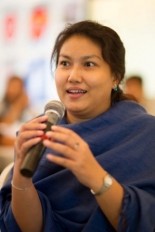
Participants attending the training were also keen to demonstrate the significance of these types of kits, Hlaing Htethar Khin, UNFPA’s Coordinator in the Ayeyarwady stated, “The PEP kits are very useful if the situation arises I can inform those exposed. This type of training is also important for information sharing amongst UN agencies.”
Other participants from UN related agencies included Shair Ahmed- Senior Program Assistant from WFP, who discussed about stigmas. He welcomed increased measures to stop stigma and discrimination that the UN Cares 10 Minimum Standards, seeks to address, “Stigmas are very common especially in rural areas which lack knowledge. If someone is affected often their own community wants to remove them.”
Training of the PEP starter kit custodians is one of the important components of effective implementation of UN Cares 10 Minimum Standards, and, thereby, to prepare the UN system workplaces to address HIV and AIDS. Today we are pleased to accomplish one more step toward our commitment to the UN Cares programme.
The training was also attended by Ashok Nigam the Resident and Humanitarian Coordinator in Myanmar, Eamonn Murphy UNAIDS Country Coordinator, Boonto, Krittayawan UNAIDS, David Eizenberg UNDP RC’s office.
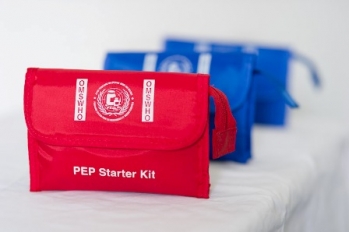
|
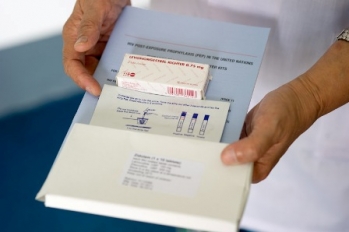
|
Click here to see more photos.

